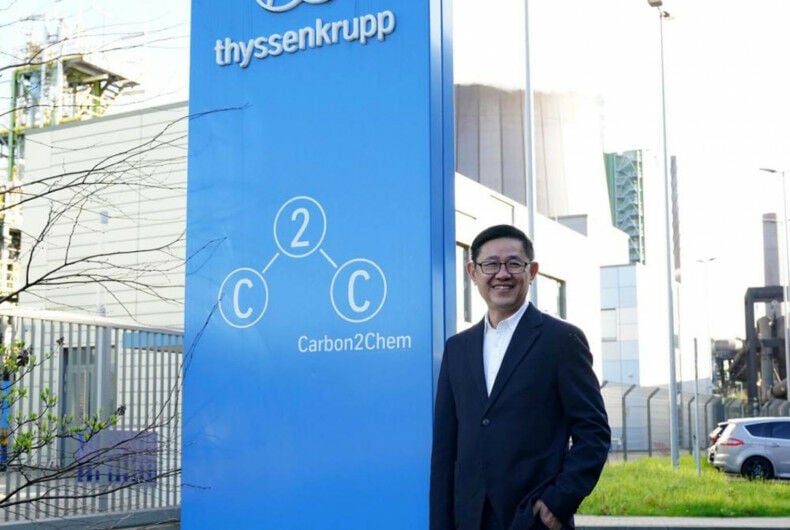PTT plc eyes green methanol production

PTT Plc, a major national oil and gas conglomerate, is contemplating the construction of a green methanol production facility. The project, costing an estimated 3.1 billion baht, aligns with PTT’s initiative to curtail carbon dioxide emissions and manufacture methanol-derived fuels.
Traditionally, methanol production relies heavily on fossil fuels. However, PTT’s proposed method utilises biomass or carbon capture techniques, paving the way for green methanol production. ThyssenKrupp Uhde, a subsidiary of German industrial engineering and steel conglomerate ThyssenKrupp AG, was commissioned for a feasibility study concerning this venture.
Buranin Rattanasombat, PTT’s New Business and Infrastructure Chief, revealed that the recently concluded front-end engineering design study gives PTT a clear stand on whether to venture into commercial green methanol production.
The study indicates that the proposed process could generate 100,000 tonnes of green methanol annually from carbon dioxide capture. This capacity could potentially escalate to over 2 million tonnes per annum.
In an effort to power the proposed green methanol factory, PTT would harness renewable energy. Annually, Thailand imports approximately 700,000 tonnes of fossil-derived methanol from the Middle East, predominantly for applications in the solvent and coating industries. PTT demonstrates interest in the green methanol technology offered by ThyssenKrupp Uhde, a specialist in green technology.
However, the venture into green methanol production warrants further deliberation due to its cost, which is notably higher than natural gas-derived methanol production, according to Rattanasombat. He further suggested that an investment incentive package might be necessary for the commercial-scale development of green methanol manufacturing.
Green methanol
Methanol is a crucial chemical in various industries, including automotive, electronics, building materials, and pharmaceuticals. Green methanol could potentially cater to the production of biofuel for aircraft, which, according to Rattanasombat, holds promising business potential.
Biofuel demand in the aviation industry is projected to skyrocket to 364 million tonnes annually by 2025, a considerable leap from 215 million tonnes in 2020, based on a study conducted by the World Economic Forum. This demand is forecasted to surge to 407 million tonnes by 2030.
PTT, alongside its subsidiaries, is implementing multiple strategies to lower CO2 emissions. The measures comprise the discontinuation of coal usage and the integration of carbon capture technology in its oil and gas exploration and production ventures.
Additionally, PTT intends to enhance its electricity generation capacity from renewable resources to 15 gigawatts, a significant increase from the current 5GW.
The company has established an ambitious goal to curtail CO2 emissions by 15% by 2030 and attain carbon neutrality by 2040. Moreover, PTT aspires to achieve a net-zero target within 2050, striking a balance between greenhouse gas emissions and absorption.
Latest Thailand News
Follow The Thaiger on Google News:


























